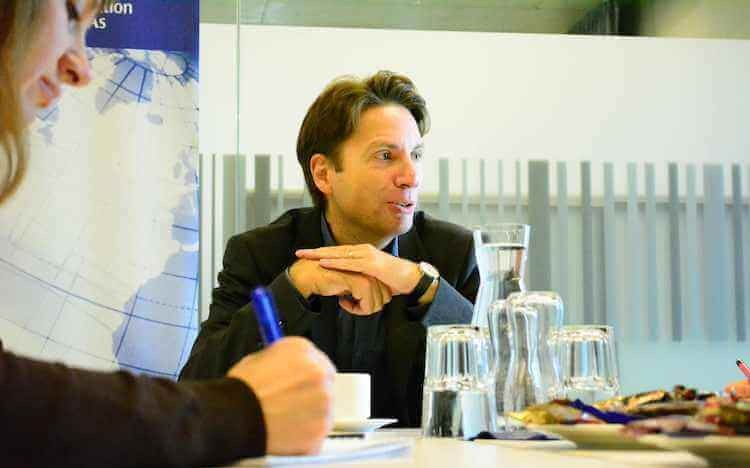They called it ‘Air Bed and Breakfast’—or Airbnb, as it’s now known.
This entrepreneurial ability—to creatively convert problems into mass solutions—is just as important to professionals in large corporations as it is to startup owners.
But picking up this skill can be elusive. It only comes naturally, it seems, to few.
So, is entrepreneurship something you can learn?
Entrepreneurship "needs to be learned"

For Professor Nikolaus Franke (pictured) from WU Executive Academy in Vienna, the answer is a resounding yes. He says entrepreneurship is better viewed as a skill than a natural talent.
“It is similar to learning an instrument,” he stresses. “Talent is a precondition, but without feedback and the help of others—be it a coach, a trainer, or peers—it is a long and hard way to the top.
“Similarly, entrepreneurship needs to be learned. After all, most babies are no good as entrepreneurs. Humans are simply not born with the knowledge of how to identify and exploit business opportunities.”
Like other business disciplines like marketing and operations, entrepreneurship has a precise theory behind it.
Nikolaus explains that understanding this is at the center of the Professional MBA in Entrepreneurship and Innovation at WU Executive Academy.
After a first year spent grasping core business modules, a specialized curriculum in second year takes students through the precision of identifying opportunities, developing strategies, as well as the practical elements of organizing, financing, and marketing a venture.
What you need to know
For entrepreneur Heidelinde Kranzl (pictured right), the part-time program offered an exciting chance to build her business knowledge on an MBA at the same time as growing her own virtual reality training business.
With classes roughly once a month, much of the work takes place in between, allowing students to balance work and study, and without the risk of putting her business plan on hold as she would have with a full-time program.
“I like that you have the time between the modules, and can really take time to consume all of the information you are being taught,” Heidelinde notes.
But understanding the theory is only half of learning how to be an entrepreneur. Being able to apply it in real world scenarios and to working business plans is everything.
Students on the WU Professional MBA get exposure to the thriving entrepreneurial ecosystem in Vienna. The Entrepreneurship and Innovation Bootcamp, during the second year specialization, gives students direct access to entrepreneurs, incubators, and accelerators all working in the Austrian capital.
The Demo-Day, moreover, is a chance to turn a project into a pitch, with a chance to present in front of an audience of venturers, managers, professors, and students.
Heidelinde has seen the direct effect on her own business, crucially deploying the learned knowledge of entrepreneurship which she lacked previously.
Applying what she has learned in real time, as well as getting feedback from her peers and professors, she has noticed significant developments in her business—whether this was building up a sales force, finding funding, or enhancing her people management.
For MBA students, there are also opportunities to learn how to apply an entrepreneurial and innovative approach to large corporations. The course focuses on innovation and how it can be applied to marketing, strategy, and organization.
The thesis, meanwhile, can take the form of a strategic business plan with practical applications. Nikolaus praises one graduate who presented his thesis in an interview. He told the interviewer: 'If you hire me, you will get a sophisticated consulting project for free'. He was hired on the spot.
Innovation is key in a changing business world. Nikolaus points to the fall of established companies like Kodak, Blackberry, and Saab, who have all struggled when they failed to innovate.
Employers increasingly demand their employees to be innovative, with creative problem solving ranked in employers’ top five most important skills, according the Financial Times Skills Gap Survey 2018.
The onus, therefore, lies on business schools to teach these important skills of entrepreneurship to prepare their graduates to be adaptable and innovative, whether they are working in startups or large corporations.
Can entrepreneurship be learned? It can and it must.








